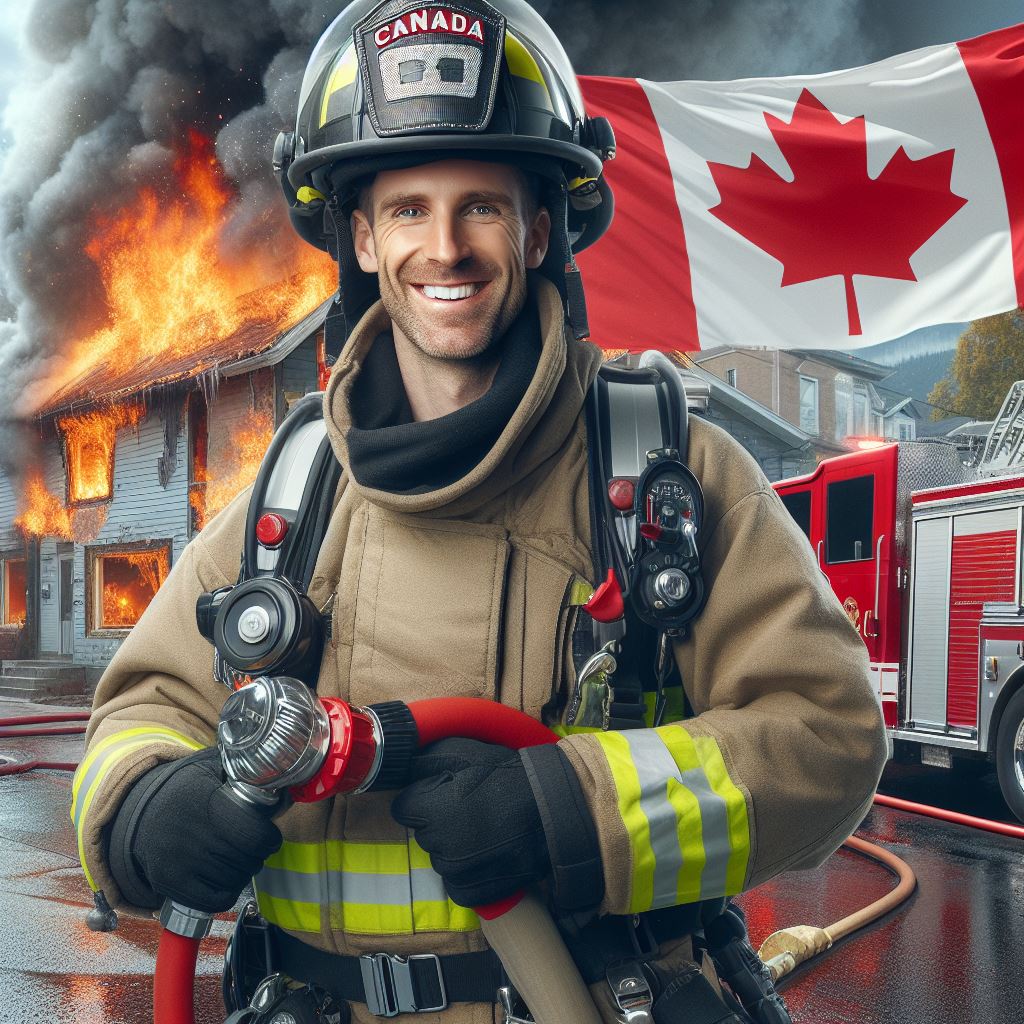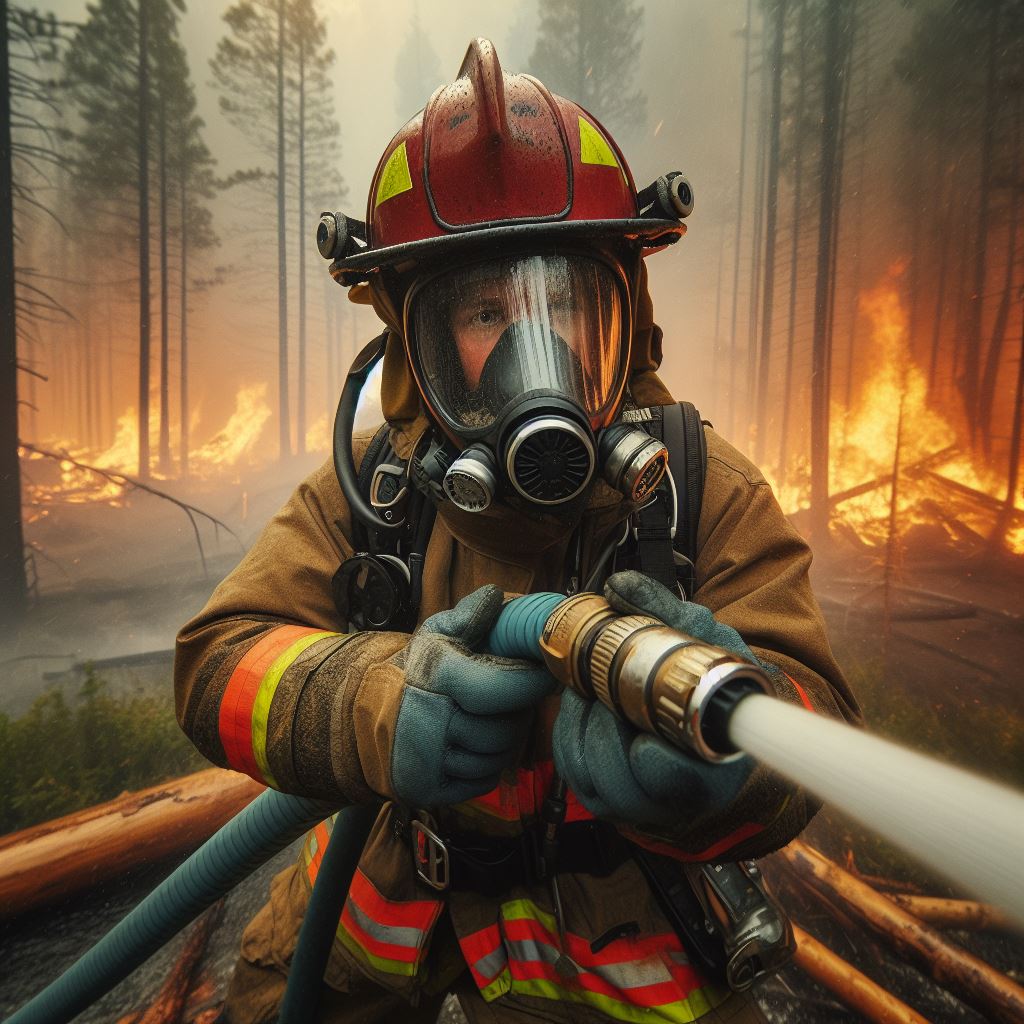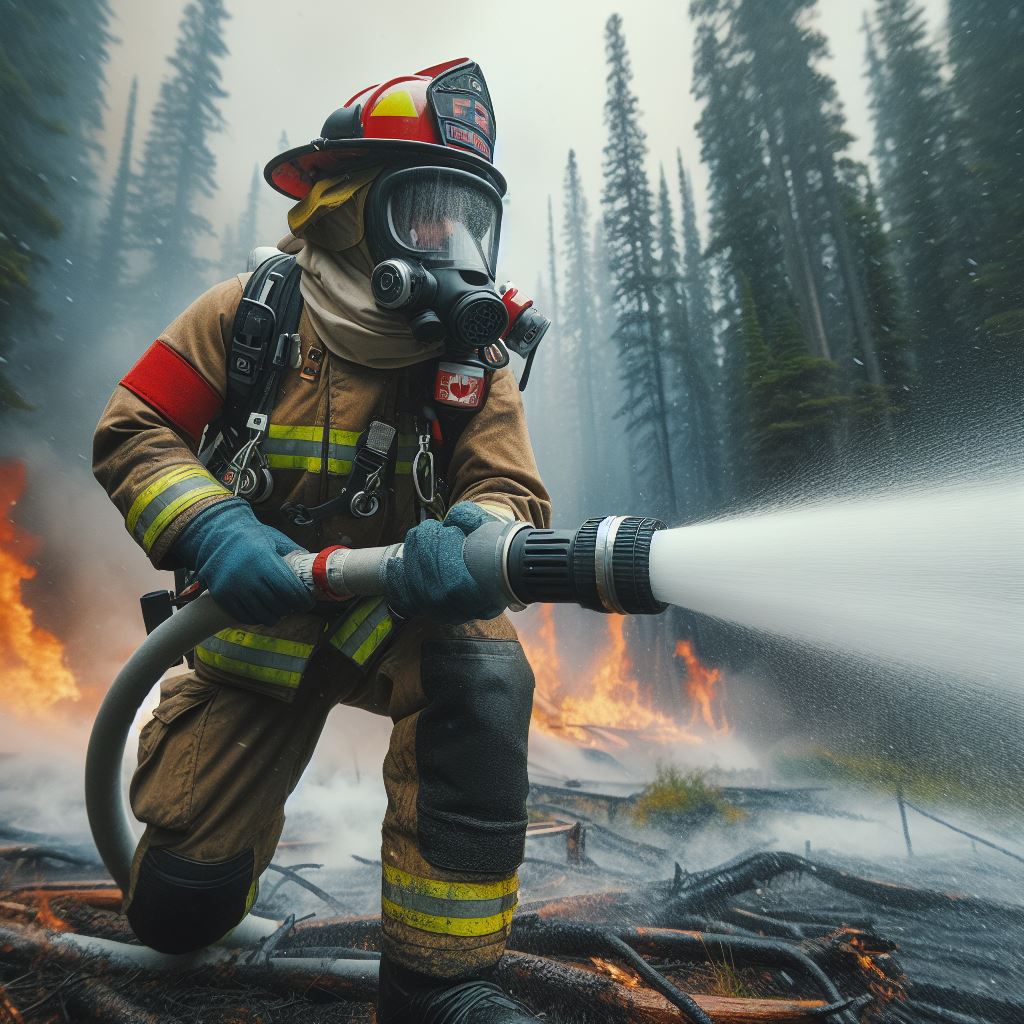Introduction
Importance of fire prevention in homes
Fires can cause devastating damage to homes and put lives at risk. It is crucial for homeowners to prioritize fire prevention to ensure their safety and the protection of their property.
Fire prevention in homes is paramount for safeguarding lives and property.
Implementing safety measures, such as smoke detectors, fire extinguishers, and regular electrical inspections, can detect and mitigate potential hazards.
Educating residents on responsible behavior with flammable materials and proper use of appliances minimizes risks.
Timely maintenance of heating systems and chimneys prevents potential fire outbreaks. In emergencies, having well-defined evacuation plans ensures swift and organized responses.
Prioritizing fire prevention not only protects homes but also promotes community safety, reducing the devastating consequences of fires on families and neighborhoods.
Brief overview of the blog post
In this blog post, we will discuss essential fire prevention tips that homeowners can implement to reduce the risk of fire incidents.
By following these guidelines, individuals can create a safer living environment for themselves and their families. Let’s delve into these preventive measures now.
Understand Fire Hazards
Common causes of residential fires
- Unattended cooking is one of the leading causes of home fires.
- Smoking materials, such as cigarettes and lighters, can easily ignite flammable items.
- Electrical malfunctions, faulty wiring, and overloaded circuits pose fire risks.
- Heating equipment, including space heaters and furnaces, need proper maintenance to prevent fires.
- Candles left unattended or placed near flammable objects can start fires.
It’s crucial to be aware of these common causes to effectively prevent residential fires.
Knowledge of potential fire hazards
- Keep flammable items, such as curtains, blankets, and paper, away from heat sources.
- Store flammable liquids, like gasoline and solvents, in proper containers away from ignition sources.
- Regularly inspect and clean chimneys to prevent the buildup of flammable creosote.
- Replace worn-out cords of electrical appliances and avoid running them under rugs or furniture.
- Install smoke detectors and regularly test them to ensure they are in working condition.
Having knowledge about potential fire hazards enables homeowners to take proactive measures.
Identifying fire-prone areas in the house
Knowing the fire-prone areas allows homeowners to focus on prevention in specific locations:
- Kitchen: Ensure there is a clear space for cooking, and never leave the stove unattended.
- Laundry room: Regularly clean lint traps and check for lint buildup in dryer vents.
- Basement: Store flammable items upright, away from the furnace, and install smoke detectors.
- Garage: Keep flammable liquids in labeled, airtight containers, away from heat sources.
- Bedroom: Check electrical cords for damage and avoid overloading outlets with too many devices.
By identifying and addressing fire-prone areas, homeowners can minimize the risk of house fires.
Always remember that prevention is key when it comes to fire safety.
By understanding common causes of residential fires, being aware of potential fire hazards, and identifying fire-prone areas in your home, you can significantly reduce the risk of a devastating fire.
Take action today to protect your loved ones and your property.
Install and Maintain Smoke Alarms
Importance of smoke alarms
The importance of smoke alarms in fire prevention cannot be overstated.
These life-saving devices are crucial for early detection of fires, allowing homeowners and their families to respond quickly and evacuate safely.
Without a properly working smoke alarm, the risk of injury and fatality dramatically increases. Therefore, it is essential for every homeowner to install and maintain smoke alarms in their homes.
Smoke alarms serve as the first line of defense against fires.
They are designed to detect smoke particles in the air, triggering a loud siren or alarm to alert occupants of the potential danger.
In the event of a fire, every second matters, and a smoke alarm can provide those precious seconds needed to escape.
Studies have shown that homes with functioning smoke alarms have a 50% lower risk of fire-related deaths compared to homes without alarms.
Placement of smoke alarms
To maximize the effectiveness of your smoke alarms, proper placement is crucial. It is recommended to have smoke alarms on every level of your home, including the basement and attic.
They should be installed inside each bedroom, outside every sleeping area, and near the kitchen. Placing them near potential fire sources, such as stoves or fireplaces, is also important.
When installing smoke alarms, it is important to mount them high on walls or ceilings. This placement ensures that smoke can reach the alarm more easily.
Unlock Your Career Potential
Visualize a clear path to success with our tailored Career Consulting service. Personalized insights in just 1-3 days.
Get StartedAvoid installing smoke alarms in corners or near air vents, as these areas may hinder their ability to detect smoke effectively.
Interconnection of smoke alarms is also beneficial. When one alarm detects smoke, all alarms in the interconnected system will sound, providing an early warning throughout the house.
Regular testing and maintenance
Simply installing smoke alarms is not enough; regular testing and maintenance are necessary to ensure their proper functioning. It is recommended to test your smoke alarms at least once a month.
Most smoke alarms feature a test button that you can press to simulate a smoke detection.
Additionally, using smoke from a candle or incense stick near the alarm can help you determine if it triggers the alarm properly.
If your smoke alarm relies on batteries, it is crucial to replace them regularly. Batteries should be replaced at least once a year or whenever the low battery warning chirps.
Keep in mind that smoke alarms usually have a lifespan of ten years, after which they should be replaced entirely.
Lastly, make sure to clean your smoke alarms periodically to remove any dust or debris that may interfere with their sensitivity.
In fact, smoke alarms are an essential component of fire prevention for homeowners.
Their importance cannot be overstated, as they provide early warning and invaluable time for evacuation.
By installing smoke alarms in appropriate locations and regularly testing and maintaining them, homeowners can greatly increase their chances of survival in the event of a fire.
Create and Practice an Emergency Escape Plan
Developing a fire escape plan
- Start by identifying all the possible exits in your home, including doors and windows.
- Make sure all family members are familiar with the layout of the house and know where the exits are located.
- Assign a meeting point outside the house where everyone will gather once they have safely escaped.
Mapping out escape routes
- Draw a floor plan of your home and mark all the exits and escape routes.
- Ensure that there is a clear path to each exit and that there are no obstacles blocking the way.
- Install smoke detectors in every bedroom and on each level of your home to provide early warning in case of fire.
Regularly practicing the escape plan
Stay prepared and remember that every second counts in an emergency.
Safe Use and Storage of Flammable Substance
Fire Prevention Tips for Homeowners: Safe Use and Storage of Flammable Substances
Awareness of flammable substances in the home
- Identify flammable substances commonly found in households, such as gasoline, propane, paint thinners, and cleaning solvents.
- Read labels and familiarize yourself with the properties and hazards associated with these substances.
- Educate family members on the potential dangers of flammable materials and how to handle them safely.
Proper storage techniques for flammable materials
- Store flammable substances in approved containers that are specifically designed for their storage.
- Keep flammable substances in a well-ventilated area away from heat sources, ignition points, and direct sunlight.
- Ensure containers are tightly sealed and labeled with clear warning signs to prevent accidental misuse or exposure.
Safe usage guidelines for common flammable substances
- When using flammable substances, work in a well-ventilated area and away from any potential sources of ignition.
- Follow manufacturer instructions carefully and avoid exceeding recommended quantities or mixing substances.
- Use only approved flammable substances indoors and never use gasoline or other volatile fuels for indoor heating or cooking.
- Never smoke or use open flames near flammable materials, as they can easily ignite and cause a fire.
- Keep flammable substances away from children and pets, stored in locked cabinets or high shelves.
- Regularly inspect and maintain any equipment or appliances that use flammable substances to ensure they are in good working condition.
- In case of a spill, use appropriate containment measures, such as absorbent materials, to prevent the spread of flammable liquids.
- Dispose of flammable substances properly according to local regulations and guidelines to minimize environmental hazards.
- Have a fire extinguisher readily available in your home and know how to use it correctly for effective suppression of small fires.
- In the event of a larger fire involving flammable substances, evacuate immediately and call emergency services.
- Create and practice a fire escape plan with your family, ensuring that everyone knows the designated meeting point outside the home.
- Install smoke alarms and regularly test them to ensure they are functioning properly, providing early warning of potential fire hazards.
More on Safe usage guidelines for common flammable substances
- Review and update your escape plan regularly, especially if there are any changes to your home’s layout or occupants.
- Consider installing fire sprinklers in your home to provide an additional layer of fire protection.
- Inform house guests and visitors about your escape plan and make sure they are familiar with the exits.
- If you live in an apartment building, familiarize yourself with the building’s fire escape plan and designated meeting areas.
- Be cautious with flammable materials such as curtains, paper products, and electrical cords.
- Keep a fire extinguisher in an easily accessible location and ensure it is regularly inspected and serviced.
- Never leave cooking unattended and keep flammable objects away from heat sources.
- Educate your family about fire hazards and the importance of fire prevention measures, such as regular maintenance of electrical systems and appliances.
By following these safe usage and storage guidelines for flammable substances, homeowners can significantly reduce the risk of fire accidents in their homes.
Remember, prevention is always better than dealing with the devastating consequences of a fire. Stay informed, stay prepared, and stay safe.
Kitchen Safety Measures
Importance of kitchen safety: Taking precautions in the kitchen is vital to prevent fires and injuries
- Always stay in the kitchen while cooking to quickly respond to any emergencies.
- Keep flammable items, such as towels and oven mitts, away from the stove.
- Regularly check and maintain smoke alarms and fire extinguishers in the kitchen.
Safe cooking practices: Following these tips will help you minimize the risk of fires while cooking
- Never leave the stove unattended, especially when using high heat or frying food.
- Keep pot handles turned inward to prevent accidental spills and burns.
- Use a timer when baking or roasting to avoid overcooking or forgetting about the food.
- Keep a lid nearby to smother small grease fires, and never use water to extinguish them.
- If a fire occurs in a pot, carefully slide a lid over it and turn off the heat.
Proper maintenance of kitchen appliances: Ensuring your kitchen appliances are well-maintained reduces the risk of fire hazards
- Regularly clean the oven, stovetop, and range hood to remove grease buildup.
- Inspect electrical cords for any damage and replace them if necessary.
- Keep flammable materials away from heating elements, such as toasters and microwave ovens.
- Avoid overloading electrical outlets and always unplug appliances when not in use.
- Have a professional inspect your gas-powered appliances annually to ensure they function safely.
Remember, the kitchen is one of the most common areas where fires start, but you can prevent them by following these safety measures.
Stay vigilant and educate other family members about kitchen safety to keep your home protected.
Read: Firefighters’ Role in Canadian Communities

Electrical Safety Precautions
Avoiding electrical fire hazards
- Keep flammable materials away from electrical outlets and appliances to prevent accidental fires.
- Use extension cords properly, avoiding overloading them or running them under rugs or furniture.
- Inspect cords regularly for any signs of damage, such as fraying or exposed wiring, and replace them if necessary.
- Never yank cords from outlets; always grasp the plug and pull it out gently to prevent wear and tear.
- Ensure that all electrical cords are properly grounded and that three-pronged plugs are used in appropriate outlets.
Regular electrical system inspections
- Schedule regular inspections by a qualified electrician to identify and fix any potential electrical hazards.
- Check for loose outlets and switches, as well as any signs of overheating, such as discolored wall plates or burning smells.
- Inspect the electrical panel for any signs of rust, water damage or loose connections.
- Test ground fault circuit interrupters (GFCIs) monthly to ensure they are functioning correctly.
- Replace outdated or damaged wiring and components to prevent electrical fires.
Proper usage and care of electrical devices
- Follow manufacturer’s instructions for installation, usage, and maintenance of electrical devices.
- Avoid overloading outlets by using power strips with built-in surge protectors and avoiding daisy-chaining extension cords.
- Do not use electrical devices near water sources, and always keep them away from flammable materials.
- Unplug appliances when not in use to reduce the risk of electrical malfunctions and potential fires.
- Regularly clean and maintain appliances to prevent dust and debris buildup, which can lead to overheating.
In general, electrical safety precautions are crucial for homeowners to protect themselves and their properties from electrical hazards.
By following these tips, you can minimize the risk of electrical fires and ensure a safe living environment for you and your family.
Remember to always prioritize electrical safety and seek professional help when necessary. Stay informed, stay cautious, and stay safe!
Read: Essential Gear for Firefighters in Canada
See Related Content: Interviews with Canadian Fire Chiefs
Discover More: Canadian Police Training: What to Expect
Maintenance of Heating Systems
A warm and cozy home is essential during the cold winter months, but it’s important to prioritize fire safety in the process.
Proper maintenance of heating systems plays a crucial role in preventing fire hazards. Here are some tips to keep your heating systems in good shape and reduce the risk of fires:
Regular maintenance of furnaces, fireplaces, and chimneys
- Schedule annual inspections by a qualified professional to ensure your furnace is in optimal condition.
- Clean or replace furnace filters regularly to prevent dust and debris buildup.
- Clear any obstructions or debris from around your furnace, fireplace, or chimney.
- Regularly remove ashes from fireplaces and dispose of them in a metal container with a tight-fitting lid.
- Inspect and clean chimneys annually to remove creosote buildup.
Ensuring proper ventilation
- Keep the area around your heating equipment clear to allow for proper air circulation.
- Never block air vents or obstruct the flow of air to and from your heating systems.
- Ensure that flammable materials are kept away from heating sources.
- Install carbon monoxide detectors near sleeping areas and check their batteries regularly.
- If you notice signs of inadequate ventilation, such as soot or excessive moisture, seek professional help.
Safe use of space heaters
- Place space heaters on a level, non-flammable surface at least three feet away from anything that can burn.
- Keep children and pets away from space heaters to avoid any accidents.
- Turn off space heaters before leaving the room or going to sleep.
- Only use space heaters that have been tested and certified by a recognized laboratory.
- Never use extension cords with space heaters; plug them directly into a wall outlet.
By following these fire prevention tips and properly maintaining your heating systems, you can ensure a warm and safe environment for you and your family during the winter season.
Don’t underestimate the importance of fire safety and take the necessary precautions to prevent fires in your home.
Read: How to Become a Firefighter in Canada
Outdoor Fire Safety
Safe disposal of hot ashes or embers
When disposing of hot ashes or embers, follow these fire prevention tips to keep your home safe:
- Allow ashes and embers to cool completely before disposing of them. This can take up to 48 hours.
- Use a metal container with a tight-fitting lid to store ashes until they are fully cooled.
- Keep the container outside, away from your home and any flammable materials.
- Avoid placing hot ashes or embers in cardboard or plastic containers as they can melt or catch fire.
- Never dispose of ashes or embers in your trash can, as they can reignite and cause a fire.
Proper use of outdoor fire pits or grills
To prevent accidental fires while using outdoor fire pits or grills, follow these safety guidelines:
- Keep the fire pit or grill at least 10 feet away from any flammable structures, including your house and fences.
- Clear the area around the fire pit or grill of any dry grass, leaves, or debris that may catch fire.
- Never leave a fire pit or grill unattended. Always extinguish the fire completely before leaving the area.
- Use a fireproof mat or bricks to protect the ground underneath the fire pit or grill from heat damage.
- Keep a fire extinguisher or a bucket of sand nearby in case of emergencies.
Fire safety measures for outdoor recreational areas
When enjoying outdoor recreational areas, take these fire safety measures to ensure the safety of yourself and others:
- Observe all local fire regulations and restrictions, especially during dry seasons or in areas prone to wildfires.
- Never leave a campfire or bonfire unattended. Always fully extinguish the fire before leaving.
- Use designated fire rings or fire pits when available and follow any posted guidelines for their use.
- Keep flammable items, such as tents and camping gear, at a safe distance from the fire.
- Dispose of cigarette butts and other smoking materials properly in designated containers.
Remember, fire prevention is crucial both inside and outside your home.
By following these outdoor fire safety tips, you can minimize the risk of fire and protect your property and loved ones.
Stay vigilant and spread awareness about fire safety to ensure a safer community.
Read: Fitness Tips for Aspiring Firefighters
Learn More: Cultural Sensitivity Training in Policing
Conclusion
Recap of important fire prevention tips
To prevent fires at home, ensure working smoke alarms, create an escape plan, and regularly maintain electrical appliances.
Maintain a clutter-free environment, keeping flammable materials away from heat sources. Exercise caution in the kitchen, never leaving cooking unattended.
Practice safe electrical habits, avoiding overloaded outlets and faulty wiring. Implement a no-smoking policy in bed or near flammable materials.
Store combustibles safely, away from heat and flames. Develop and practice a fire escape plan with family or colleagues, and keep fire extinguishers accessible.
Regularly service heating systems and chimneys to prevent potential hazards. Vigilance and proactive measures significantly reduce the risk of fire incidents.
Encouragement to prioritize fire safety in homes
Fire safety should be a top priority for every homeowner to protect their loved ones and valuable assets.
Prioritizing fire safety at home is crucial for protecting lives and property. Install smoke alarms in key areas and regularly test them to ensure they function properly.
Create and practice a fire escape plan with all household members, emphasizing swift and safe evacuation. Keep flammable materials away from heat sources and invest in fire extinguishers.
Regularly inspect and maintain heating appliances, electrical systems, and wiring to prevent potential fire hazards.
Educate family members about fire prevention and the importance of responsible behavior with fire-related items.
Prioritizing these measures ensures a safer home environment and reduces the risk of devastating fires.
Final thoughts and call to action for readers
Take immediate action by implementing fire safety measures, spreading awareness, and urging others to do the same.




